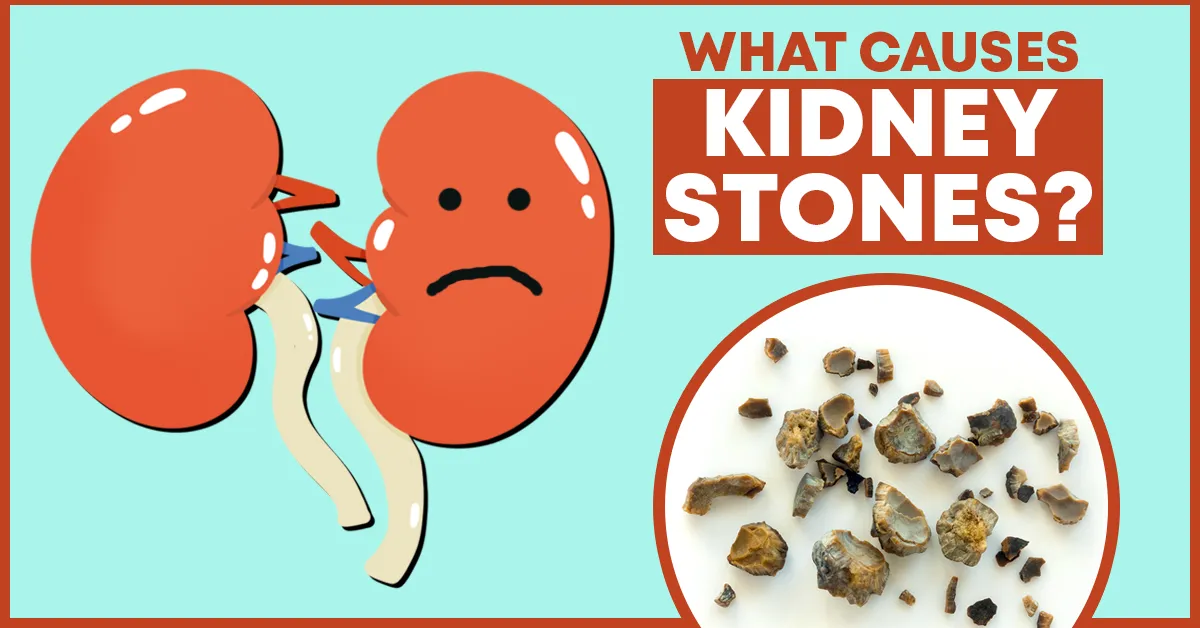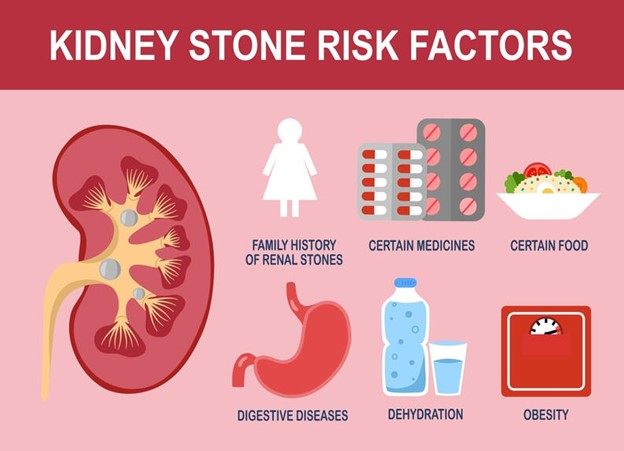
What causes kidney stones?
, by saikat dutta, 4 min reading time

, by saikat dutta, 4 min reading time
What causes kidney stones?, those agonizingly painful crystals that form in your kidneys, are a common medical issue affecting millions worldwide. While the experience of passing a kidney stone is unpleasant, understanding what causes them can help you take preventive measures and reduce your risk.
What are Kidney Stones?
What causes kidney stones? Kidney stones are hard, pebble-like deposits that form inside the kidneys when there's a buildup of minerals and salts in your urine. These stones can range in size from a tiny grain of sand to a golf ball, and their formation is a complex interplay of factors.

The Main Culprits: Factors Contributing to Kidney Stone Formation
Dehydration: Your urine is a crucial vehicle for flushing out waste products and excess minerals. When you're dehydrated, your urine becomes more concentrated, creating a breeding ground for crystals to form.
Dietary Factors: A diet high in animal protein, sodium, and oxalate can increase the risk of kidney stone formation. Oxalate, a naturally occurring compound found in many foods, can combine with calcium to form calcium oxalate stones, the most common type.
Medical Conditions: Certain medical conditions can increase your risk of kidney stones. These include:
Genetic Predisposition: Family history plays a significant role in kidney stone development. If someone in your family has had kidney stones, you may be at an increased risk.
Certain Medications: Some medications, like diuretics and anti-rejection drugs, can increase your chances of developing kidney stones.
Climate and Geography: Living in a hot, dry climate can increase your risk of dehydration and thus kidney stones.

A Deeper Dive into Dietary Considerations
What causes kidney stones? Let's delve deeper into the impact of dietary choices on kidney stone development:
Prevention is Key: Steps to Reduce Your Risk
Understanding the causes of kidney stones is the first step towards effective prevention. Here are some strategies you can adopt:
Living with Kidney Stones: Management and Treatment
While prevention is paramount, you may still experience kidney stones despite your best efforts. The good news is that most stones can be treated effectively. Treatment options range from medication to shockwave therapy to surgical removal, depending on the size and location of the stone.


